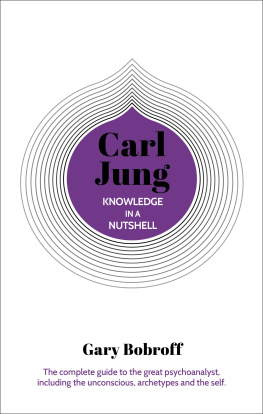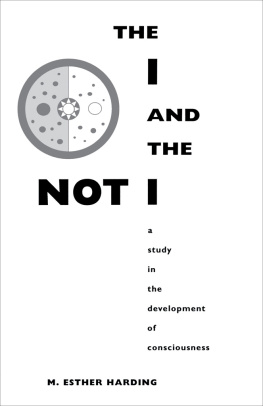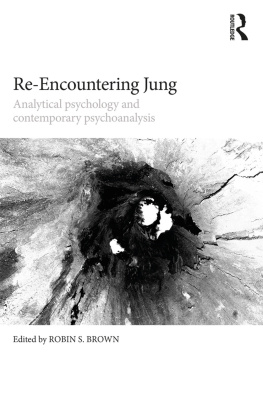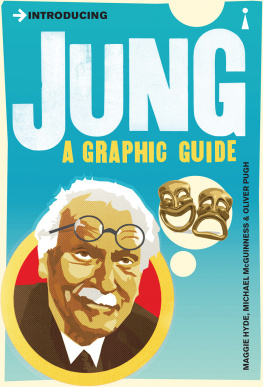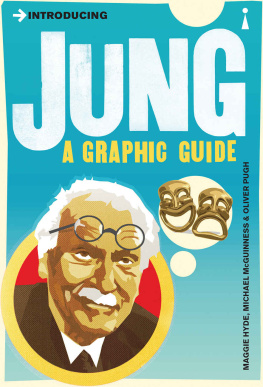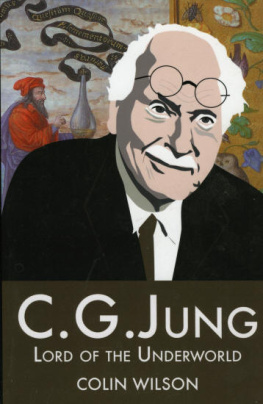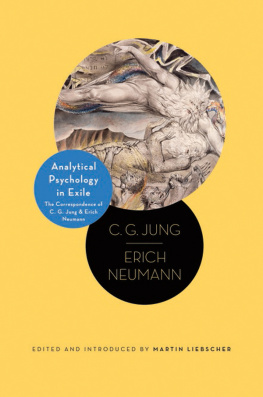ANALYTICAL
PSYCHOLOGY
NOTES OF THE SEMINAR
GIVEN IN 1925 BY
C. G. JUNG
EDITED BY WILLIAM McGUIRE
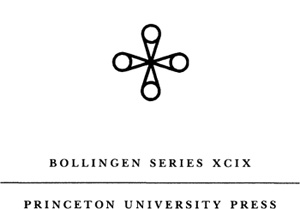
COPYRIGHT 1989 BY PRINCETON UNIVERSITY PRESS
PUBLISHED BY PRINCETON UNIVERSITY PRESS
41 WILLIAM ST., PRINCETON, NEW JERSEY
ALL RIGHTS RESERVED
THIS EDITION OF THE NOTES OF JUNGS SEMINARS IS BEING PUBLISHED IN THE UNITED STATES OF AMERICA BY PRINCETON UNIVERSITY PRESS, AND IN ENGLAND BY ROUTLEDGE LTD. IN THE AMERICAN EDITION, THE VOLUMES OF SEMINAR NOTES CONSTITUTE NUMBER XCIX IN BOLLINGEN SERIES, SPONSORED BY BOLLINGEN FOUNDATION
The text here edited is that of the original transcript prepared by Cary F. de Angulo and privately issued in multigraphed form by members of the class and copyright 1926 by Dr. C. G. Jung, Zurich
LIBRARY OF CONGRESS CATALOGING-IN-PUBLICATION DATA
JUNG, C. G. (CARL GUSTAV), 18751961.
ANALYTICAL PSYCHOLOGY : NOTES OF THE SEMINAR GIVEN IN 1925 /
BY C. G. JUNG ; EDITED BY WILLIAM MCGUIRE.
P. CM.(BOLLINGEN SERIES ; 99) INCLUDES INDEX.
ISBN 0-691-09897-2
ISBN 0-691-01918-5 (PBK.)
1. PSYCHOANALYSIS. I. MCGUIRE, WILLIAM, 1917 . II. TITLE.
III. SERIES
BF 173.J666 1989 150.19'54DC19 89-3533
PRINCETON UNIVERSITY PRESS BOOKS ARE PRINTED ON ACID-FREE
PAPER AND MEET THE GUIDELINES FOR PERMANENCE AND
DURABILITY OF THE COMMITTEE ON PRODUCTION GUIDELINES
FOR BOOK LONGEVITY OF THE COUNCIL ON LIBRARY RESOURCES
FIRST PRINCETON/BOLLINGEN PAPERBACK PRINTING, 1991
5 7 9 10 8 6 4
PRINTED IN THE UNITED STATES OF AMERICA
BOLLINGEN SERIES XCIX

TABLE OF CONTENTS
, by William McGuire
, by Cary F. de Angulo
INTRODUCTION
This seminar, with its curiously synoptic title, was the first that Jung gave under relatively formal circumstances, and also the first that was recorded and multigraphed for the benefit of the growing body of his English-speaking students. composed the Two Essays in Analytical Psychology. The Two Essays continued for many years to be regarded as the introduction of choice.

On the opening day of this watershed year of 1925, Jung had been at the Grand Canyon of the Colorado River with a party of friends; a few days later he visited the Taos Pueblo, north of Santa Fe, New Mexico, and after that New Orleans, Chattanooga, and New York City. Throughout those venturesome travels, Jungs companions were English and American: in the Southwest, George F. Porter and Fowler McCormick, both of Chicago, and the Spanish-born Jaime de Angulo; in Africa, the English analyst H. Godwin Baynes, George Beckwith, an American, and an Englishwoman, Ruth Bailey. All except Miss Bailey were analysands of Jung at one time or another.
Of the twenty-seven recorded members of the 1925 seminar, thirteen were Americans, six were English, five (judging by our only evidence, their surnames) could be either, two were Swiss, one was German. Seven (all women) were Jungian analysts, of whom two were Swiss: Emma Jung, who had by this time begun to practice (her younger children were fourteen and eleven); and Tina Keller, who later moved to California with her husband Adolf Keller, a Protestant pastor early drawn to psychoanalysishe attended the Weimar Congress in 1911. The Americans included the New York troikaM. Esther Harding, Eleanor Bertine, and Kristine Mann, all physicians. Harding, from Shropshire in the west of England, had qualified at the London School of Medicine for Women in 1914. Her colleague Constance Long introduced her to Psychology of the Unconscious, newly
The other American, Elida Evans, had not been part of the Jungian circle in New York, or so it would appear. In 1915 she had been in Zurich for analysis with Maria Moltzer, and in 1920 Jung introduced her book on child psychology. In those same years, as a lay analyst in New York, she had assisted Smith Ely Jelliffe, a psychoanalyst who had friendly relations with both Jung and Freud.
Another category embraces those seminarians who were, in some degree, literary. The American writer Charles Roberts Aldrich, if we may judge by his comments in the seminar, was an intellectual of more than usual sophistication. He helped Jung revise the English text of the lectures on psychology and education he delivered in London during the spring of 1924. When Aldrich left Zurich to return home to California, he gave Jung his dog, Joggi, who was Jungs familiar for years afterward and had his place in the consulting room. That years experiences were reflected in a volume of poems, Animula Vagula (1926). Bacons subsequent career as a poet, critic, and translator was distinguished; he was awarded the Pulitzer Prize for poetry in 1940.
Still another literary American, Elizabeth Shepley Sergeant, may have been one of Jungs first, or even the first, analysand from the United States. In her twenties, while traveling in Europe with an aunt, Sergeant suffered some form of nervous disorder and was treated at a sanitarium in Zurich during the winter of 19041905. According to family lore, it may have been then that she was first analyzed by Jung. During her long career as both journalist and literary critic, her subjects included Robert Frost, Willa Cather, William Alanson White, Paul Robeson, H. L. Mencken, and many others. Among several pieces about Jung, a portrait that Sergeant published in 1931 presents a picture of him at a seminar meeting she attended:
When, on Wednesday morning at eleven,... Doctor Jung enters the long room at the Psychological Club where his Seminar is held, smiling with a deep friendliness at this or that face, the brown portfolio which he hugs to his side seems to be the repository
Jung would have learned of the anthropologist Paul Radins research on American Indian ethnography and religion from Cary and Jaime de Angulo, who had known Radin in California before 1920. In that year, Radin went to England to work at Cambridge University under the anthropologist W.H.R. Rivers, lecturing, teaching, and pursuing research.and collaborated with Jung and Karl Kernyi on a book about the archetype of the Trickster.
While in Zurich, Radin and his wife, Rose, discovered acquaintances from California: Kenneth Robertson and his wife, Sidney. Robertson, who had studied psychological testing under L. M. Terman at Stanford University, had gone to Europe intending to train as a lay analyst. In Paris, at the bookshop called Shakespeare & Co., he discovered a copy of Psychology of the Unconscious and forthwith wrote Jung, who invited him to come and train in Zurichas it transpired, to work analytically with Toni Wolff and attend the seminar. Sidney Robertson, on her part, worked with Kristine Mann and also sat in the seminar, silently. (She remembered, in a recent interview, that Hermann Hesse and Richard Strauss each, also silently, dropped in on a session.) Jung, who had set young Sidney Robertson to work correcting and typing his lectures on psychology and education, pronounced her husband unanalyzable. The Robertsons, nevertheless, along with some of the other seminarians, followed Jung to Swanage for the Dreams and Symbolism seminar in late July. Then they went home to Oakland, where Robertson for a time tried to make it as a lay analyst, then gave up and took a job with the post office. Over the years, nonetheless, he preserved a friendly rapport with the Jungian pioneers in the Bay Area, the Whitneys and the Gibbs.


